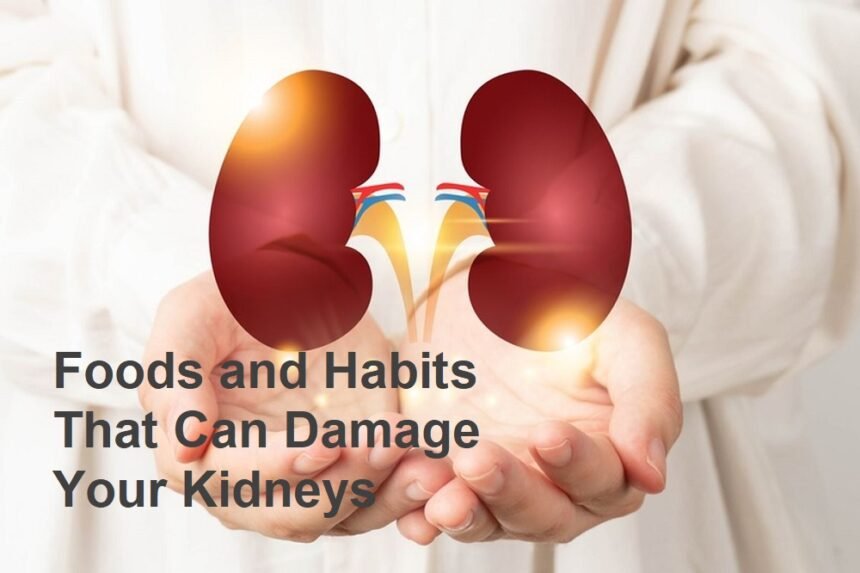Your kidneys are vital organs that filter waste, balance fluids, and regulate blood pressure. However, certain dietary choices and lifestyle habits can silently compromise their function. Here’s a breakdown of key culprits and how to protect your kidney health.
- High-Sodium Foods
Excessive salt intake raises blood pressure, straining the kidneys. Processed snacks, canned soups, deli meats, and fast food are laden with sodium. Over time, hypertension can damage kidney blood vessels. Aim for less than 2,300 mg of sodium daily, opting for herbs and spices instead.
- Processed Foods and Phosphorus Additives
Processed items like frozen meals and sodas often contain phosphorus additives. Healthy kidneys regulate phosphorus, but excess amounts (common in diets heavy in processed foods) can weaken bones and harm kidneys. Check labels for “PHOS” additives and choose fresh, whole foods.
- Red Meat and Uric Acid Buildup
Frequent consumption of red meat (beef, pork) increases uric acid production, raising the risk of kidney stones and gout. High purine levels in meat overload the kidneys. Balance your diet with plant-based proteins like beans or tofu.
- Sugary Drinks and Obesity
Sodas, energy drinks, and sweetened juices contribute to obesity and diabetes, leading causes of kidney disease. High sugar intake spikes blood glucose, damaging kidney filters. Opt for water, herbal teas, or infused fruits for flavor.
- Excessive Alcohol Consumption
Alcohol dehydrates the body, forcing kidneys to work harder. Chronic heavy drinking also elevates blood pressure and liver dysfunction, indirectly harming kidneys. Limit intake to one drink daily for women, two for men.
- Overusing Painkillers (NSAIDs)
Frequent use of NSAIDs like ibuprofen reduces blood flow to the kidneys, risking acute injury or chronic damage. Use these medications sparingly and consult a doctor for alternatives if needed.
- Smoking and Blood Vessel Damage
Smoking narrows blood vessels, impairing kidney function by reducing circulation. It also increases the risk of kidney cancer. Quitting smoking improves overall vascular health, benefiting your kidneys.
- Chronic Dehydration
Insufficient water intake concentrates urine, promoting kidney stone formation. Aim for 6–8 glasses daily, adjusting for activity level and climate. Hydration helps kidneys flush toxins effectively.
- Ignoring Urinary Tract Infections (UTIs)
Untreated UTIs can spread to the kidneys, causing infections or scarring. Symptoms like burning urination or back pain warrant prompt medical attention to prevent complications.
- Overconsumption of Supplements
Excessive vitamin or herbal supplements (e.g., high doses of vitamin C, creatine) can overload kidneys. Always consult a healthcare provider before starting supplements, especially with preexisting conditions.
- High-Protein Diets
While protein is essential, overconsumption (particularly from animal sources) forces kidneys to excrete more waste, stressing them over time. Moderate intake and incorporate diverse protein sources.
Protecting Your Kidneys: Practical Tips
- Eat Balanced Meals: Prioritize fruits, vegetables, whole grains, and lean proteins.
- Stay Active: Regular exercise manages blood pressure and weight.
- Monitor Health: Control diabetes and hypertension with regular check-ups.
- Avoid Fad Diets: Extreme diets often disrupt kidney function.
Conclusion
Kidney damage often progresses silently, making prevention critical. By moderating sodium, avoiding processed foods, staying hydrated, and adopting healthy habits, you can safeguard these essential organs. Small, consistent changes today can ensure your kidneys thrive for years to come.













